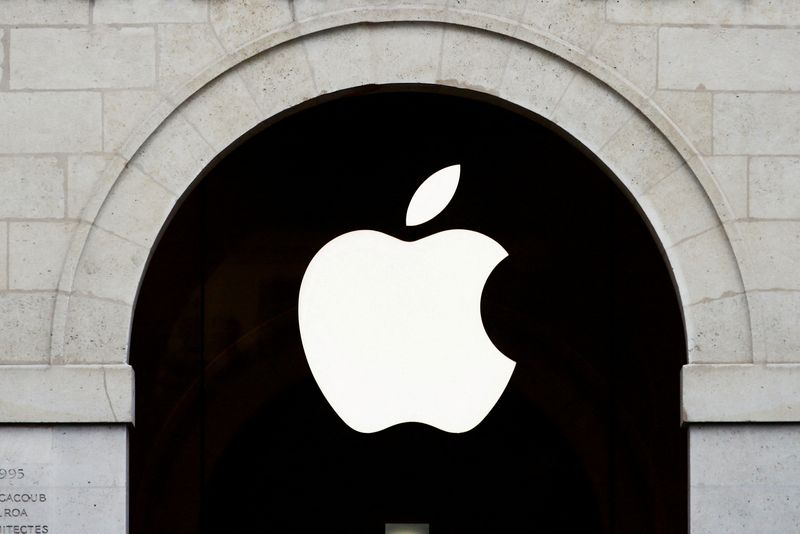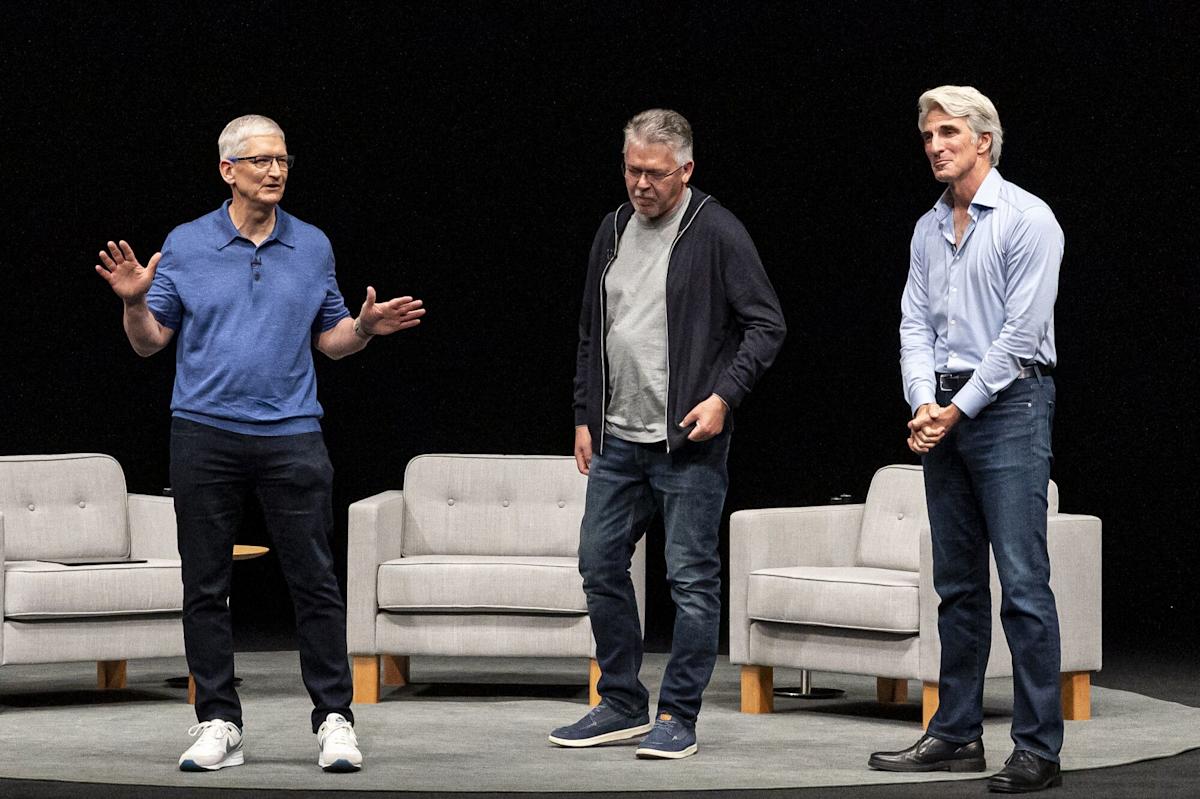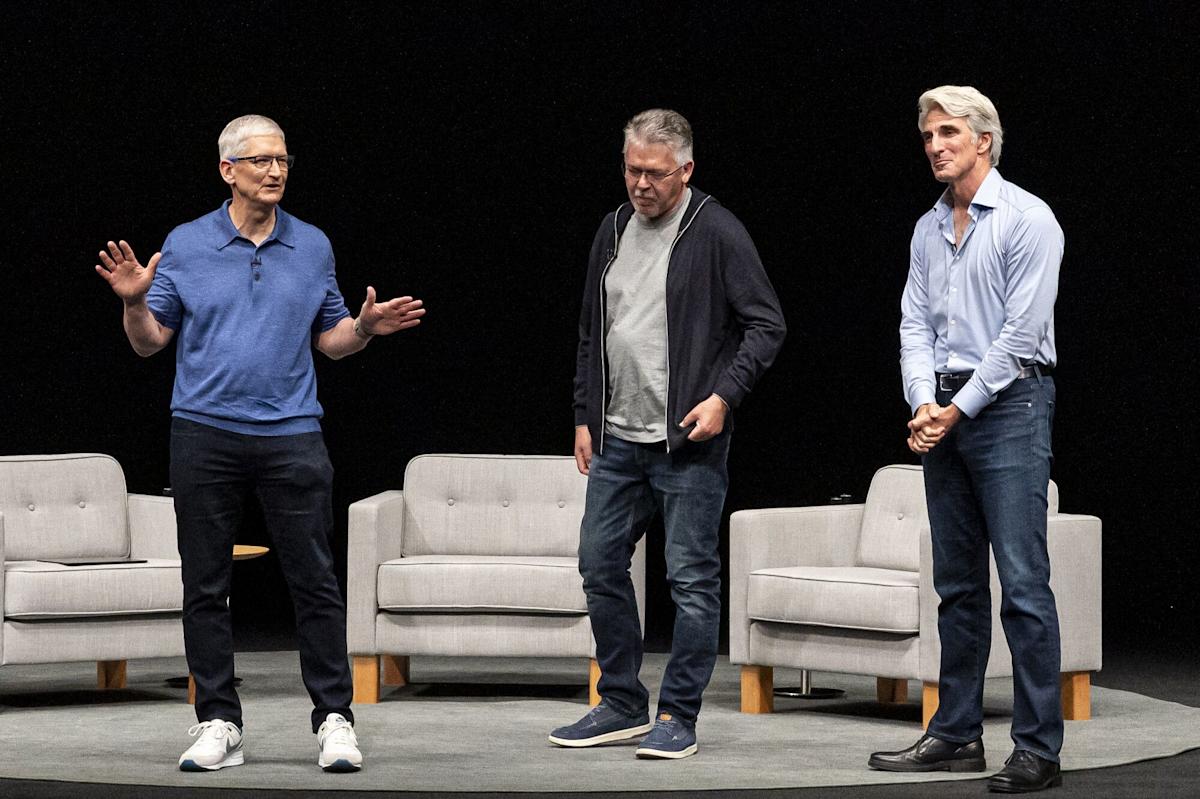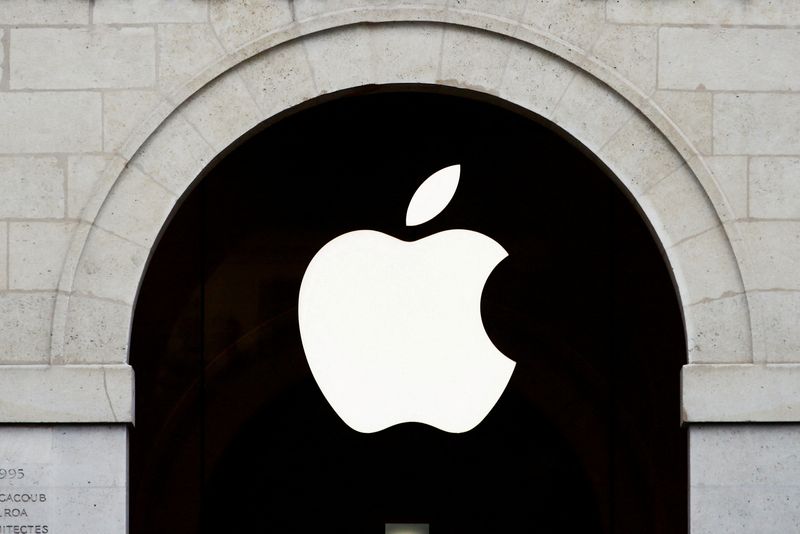Apple’s Secret to Reviving Siri: A Shake-Up of the Highest Order In a move that’s set to send ripples through the tech industry, Apple has undergone a significant shake-up of its executive ranks. Gone are the days of the company’s Siri-powered virtual assistant being seen as a relic of the past. Instead, the tech giant is opting for a bold new strategy to revitalize the once-maligned service, according to insiders at Bloomberg. As Apple navigates the complex landscape of AI and voice assistants in the digital age, one thing is clear: the company’s future is in the hands of a new team of leaders, and their plans are set to shake up the status quo.
Executive Shake-Up at Apple: A Fresh Start for Siri and AI Efforts
Tim Cook’s Strategic Shift
In a strategic move aimed at revitalizing its artificial intelligence (AI) efforts, Apple has made significant changes to its executive ranks. The shake-up comes as the tech giant grapples with delays in delivering promised AI features for its Siri virtual assistant. The most notable change involves the reassignment of key executive roles, with CEO Tim Cook losing confidence in the leadership of John Giannandrea, Apple’s senior vice president of AI and Machine Learning.
Giannandrea, who joined Apple from Google in 2018, was initially brought in to spearhead the company’s AI initiatives. However, recent setbacks and delays in delivering on AI-driven features have led to a reassessment of his leadership. Apple’s delay in releasing certain AI improvements to Siri, which were initially promised for 2025 and later pushed back to 2026, has underscored the urgency of the situation. This delay has had a significant impact on Apple’s reputation, especially as competitors like Google and Amazon continue to innovate in the AI space.
The decision to replace Giannandrea with Mike Rockwell, the mastermind behind the Vision Pro, signals a shift in Apple’s approach to AI. Rockwell, who has been instrumental in the development of Apple’s Vision Pro headset, brings a unique blend of technical expertise and innovative thinking to his new role. His background in hardware and software integration aligns well with Apple’s needs to create a more seamless and integrated AI experience.
Rockwell will report directly to Craig Federighi, Apple’s software chief, marking a significant change in the reporting structure. This move effectively removes Siri from Giannandrea’s purview and places it under Federighi’s oversight. This restructuring is aimed at fostering closer collaboration between hardware and software teams, which is essential for the successful deployment of AI features.
Paul Meade, who has been instrumental in the development of the Vision Pro, will take over as the head of the Vision Products Group (VPG). Meade’s background in hardware engineering and his experience working with Rockwell make him a natural fit for this role. Under Meade’s leadership, the VPG is expected to continue its focus on innovation and technical excellence, even as it navigates the transition of key team members.
Siri’s Turnaround Plan
The delays in Siri’s development have been a source of frustration for both Apple and its users. The much-publicized features, including the ability to tap into a user’s data to fulfill queries, have been delayed multiple times. This has led to a loss of trust and confidence in Apple’s ability to deliver on its promises.
Under Rockwell’s leadership, Siri is expected to undergo significant changes. Rockwell’s approach is likely to focus on leveraging his expertise in hardware and software integration to create a more seamless and intuitive user experience. This could include the development of new AI models that are more efficient and accurate, as well as the integration of advanced natural language processing (NLP) techniques.
One of the key challenges Rockwell will face is managing the morale of the Siri team. The delays and setbacks have taken a toll on the team, with some members expressing frustration and embarrassment. Effective communication and support will be essential in rebuilding the team’s confidence and motivation. Rockwell’s experience in leading large engineering teams and his ability to inspire and motivate employees will be crucial in this regard.
Rockwell’s expertise in hardware and software integration could also lead to the development of new hardware innovations that enhance Siri’s capabilities. For example, the integration of advanced sensors and cameras in Apple devices could enable Siri to understand and respond to more complex commands, improving its overall performance and usability.
The Vision Pro Transition
With Mike Rockwell transitioning to lead Siri, the Vision Products Group will be led by Paul Meade. Meade brings a wealth of experience in hardware engineering and has been a key player in the development of the Vision Pro. His background in hardware engineering will be invaluable in guiding the VPG through this transition.
The Vision Pro, while a technical marvel, has struggled to gain traction in the market. Under Meade’s leadership, the VPG is expected to focus on refining the product and developing new features that enhance its appeal. This could include the integration of advanced AI capabilities that leverage the hardware’s strengths and address user needs.
One of the challenges in this transition is maintaining the momentum and innovation that Rockwell has brought to the Vision Pro. Meade will need to ensure that the VPG continues to push the boundaries of what’s possible with augmented reality (AR) and virtual reality (VR) technologies. This will involve fostering a culture of innovation and encouraging cross-functional collaboration between hardware and software teams.
Meade’s leadership also provides an opportunity to address some of the technical challenges that have hindered the Vision Pro’s success. For example, improving the hardware’s performance and reliability, as well as enhancing the user experience, will be key priorities. Meade’s experience in hardware engineering will be instrumental in driving these improvements.
Implications for Apple’s AI Strategy
The executive shake-up at Apple has significant implications for the company’s AI strategy. The decision to replace Giannandrea with Rockwell signals a shift towards a more integrated approach to AI development. This approach leverages the strengths of both hardware and software teams, which is essential for creating innovative and user-friendly AI solutions.
Rockwell’s background in hardware and software integration makes him well-suited to lead Siri’s turnaround. His ability to manage large engineering teams and drive innovation will be crucial in overcoming the challenges faced by Siri. Additionally, his experience in developing the Vision Pro demonstrates his ability to deliver complex technical projects on time and within budget.
The transition of the Vision Products Group to Paul Meade also has important implications for Apple’s AI strategy. Meade’s leadership will be instrumental in driving the development of new AI capabilities for the Vision Pro. This could include the integration of advanced AI models that enhance the product’s functionality and user experience.
Overall, the executive shake-up at Apple reflects the company’s commitment to innovation and its determination to stay at the forefront of AI development. By bringing in new leadership and fostering a culture of collaboration, Apple aims to overcome the challenges faced by Siri and the Vision Pro, and to drive the next wave of AI innovation.
The executive shake-up at Apple is a strategic move designed to revitalize the company’s AI efforts and position it as a leader in the AI space. By bringing in new leadership and fostering a culture of innovation, Apple aims to overcome the challenges faced by Siri and the Vision Pro, and to drive the next wave of AI innovation. The success of these changes will depend on the ability of Rockwell and Meade to lead their teams through this transition and deliver on Apple’s promises.
Competitive Landscape

Apple is under significant pressure to catch up with its competitors in the AI domain. Industry rivals such as Google and Amazon have been making substantial strides in developing sophisticated AI technologies, particularly in the realms of natural language processing and smart home integration. The recent executive shake-up at Apple, spearheaded by the appointment of Mike Rockwell to oversee Siri, underscores the company’s urgency to revamp its AI capabilities. Rockwell, known for his role in the Vision Pro project, brings a fresh set of skills and a proven track record in product development. This strategic move is aimed at reinvigorating Siri and aligning it more closely with the company’s broader AI ambitions.

Long-Term Goals
AI Strategy and Vision
The shift in leadership is not just a temporary fix but a step towards a more integrated AI strategy. With Rockwell taking the helm, Apple aims to harness the innovative spirit behind the Vision Pro to rejuvenate Siri. This move signals Apple’s commitment to creating a seamless, intelligent ecosystem that can compete with the sophisticated AI-driven platforms of its rivals. The long-term goal is to integrate advanced AI capabilities across all its products, from iPhones to Macs and beyond, positioning Siri as a central, intelligent interface for all Apple devices.

Strategic Direction
This realignment also reflects a broader shift in Apple’s approach to AI, moving from a focus on isolated, device-specific enhancements to a more unified, cross-product AI strategy. By placing a hardware expert like Rockwell in charge of Siri, Apple is emphasizing the importance of hardware-software integration in delivering superior AI experiences. This could lead to more innovative and integrated AI features, enhancing user interaction and satisfaction across the Apple ecosystem.
Investor and Market Reactions
Impact on Stock Performance
The market is closely watching these changes to gauge their potential impact on Apple’s stock performance. Analysts at Gizmoposts24 have noted that while the immediate reaction to the news was mixed, there is optimism that these changes could bring about the necessary turnaround in Siri’s development. This could lead to a subsequent boost in investor confidence, especially if the changes lead to the timely release of new features and improvements in Siri’s functionality.
Analyzing Analyst Insights
Analysts are particularly interested in how these changes will impact the development timeline of upcoming AI features. With Rockwell’s appointment, there is hope that Apple can streamline the development process and bring new innovations to market more efficiently. The market’s reception will be heavily influenced by the success of these efforts, as investors look for tangible improvements in product performance and user experience.
Practical Aspects for Tech Enthusiasts
What Users Can Expect
Apple users can anticipate a range of improvements and new features in Siri, designed to enhance the assistant’s functionality and user experience. With Rockwell’s expertise in hardware and software integration, the focus will likely be on developing more intuitive and contextually aware responses from Siri. Users may also see enhanced integration of Siri with other Apple services and devices, making it a more seamless part of their digital lives.
Vision Pro Updates
The Vision Pro, which has been a subject of both praise and criticism, is expected to see new features and potential upgrades. Rockwell’s involvement could bring a new wave of innovation to the Vision Pro, potentially addressing some of the current limitations and enhancing the product’s appeal. The integration of advanced AI capabilities could make the Vision Pro more intelligent and responsive, paving the way for a more successful second generation.
Broader Trends in Tech
Apple’s decision to restructure its AI leadership reflects broader trends in the tech industry, where companies are increasingly focusing on consolidating AI capabilities across their product lines. Other tech giants might be watching closely, as Apple’s strategy could set a precedent for how major corporations approach and manage AI-driven product development. This shift could prompt similar reorganizations and strategic realignments within other tech firms as they vie for leadership in the AI space.
Apple’s AI Challenges and Future Directions
Lessons Learned
Apple’s struggles with Siri highlight the challenges of integrating advanced AI technologies into consumer products. The delays in features like AI-driven summarization and data integration underscore the complexities involved. However, these challenges also offer valuable lessons. Moving forward, Apple will likely prioritize more rigorous testing and validation phases to avoid similar setbacks. The company’s new focus on a more integrated AI strategy could lead to more robust and reliable AI-driven features going forward.
Future-Proofing AI Development
To future-proof its AI efforts, Apple is likely to adopt agile development methods that allow for rapid iteration and adaptation. This approach will be critical in keeping up with the fast-paced advancements in AI technology. Additionally, Apple might focus on fostering a culture of innovation and collaboration between various teams within the company. This could involve cross-functional teams working closely together to ensure that AI-driven innovations are both cutting-edge and user-friendly.
Innovation Pipeline
Apple’s innovation pipeline is expected to see a surge in AI-driven features designed to enhance user experience across its product lineup. The company plans to introduce new features that leverage advanced AI technologies, such as machine learning algorithms and natural language processing, to make Siri more capable and user-friendly. These features will likely include more intelligent responses, better contextual understanding, and enhanced personalization options. Apple’s ongoing research and development efforts will play a key role in maintaining its competitive edge in the AI space.
Comparative Analysis with Industry Rivals
Benchmarking Success
Apple’s AI efforts must be viewed in the context of its competition. Google Assistant and Amazon’s Alexa, for example, have made significant strides in integrating AI into everyday use, from home automation to voice-controlled services. Apple’s previous challenges with Siri, including delays in feature rollouts and performance issues, have somewhat hampered its competitive position. However, the recent executive reorganization signals a strategic pivot towards a more integrated, device-centric approach that could help Apple catch up and potentially overtake its rivals.
Learning from Others
Apple can learn from the successes and failures of Google and Amazon. Google’s investment in deep learning technologies and Amazon’s focus on the smart home market are areas where Apple has room to grow. By integrating lessons from these competitors, Apple can refine its AI strategy to better meet consumer needs and market demands. The company’s new focus on cross-product AI capabilities could help it leverage its hardware strengths to create a more compelling AI-driven experience for users.
Market Positioning
The recent executive changes are part of Apple’s broader strategy to solidify its position in the AI market. By focusing on hardware-software integration and cross-product AI capabilities, Apple is positioning itself to offer a more holistic and seamless AI experience. The company’s commitment to integrating AI across its product lines, from iPhones to the Vision Pro, indicates a strong drive to regain a leading position in AI innovation. As Apple continues to refine its AI strategy, it aims to deliver a more cohesive and user-friendly AI experience that sets a new standard in the industry.
Conclusion
In conclusion, Apple’s recent shake-up of its executive ranks, as reported by Bloomberg, marks a significant shift in the tech giant’s strategy to revitalize Siri, its struggling virtual assistant. The move, which involves the departure of key executives and the realignment of responsibilities, is a clear indication of Apple’s commitment to reclaiming its position in the AI-powered assistant market. The article highlights the significance of this development, noting that Siri’s underperformance has been a major hindrance to Apple’s growth in recent years.
The implications of this move are far-reaching, with potential consequences extending beyond Apple’s own ecosystem. As the tech industry continues to evolve, the battle for dominance in AI-powered assistants will only intensify. Apple’s renewed focus on Siri could lead to significant advancements in natural language processing, machine learning, and user experience, ultimately benefiting consumers and driving innovation. Furthermore, this development may also prompt competitors like Amazon, Google, and Microsoft to re-evaluate their own strategies in the virtual assistant space.
As Apple’s efforts to turn around Siri gain momentum, one thing is clear: the future of AI-powered assistants hangs in the balance. Will Apple’s revamped approach to Siri pay off, or will it continue to lag behind its competitors? One thing is certain – the tech giant’s commitment to innovation will have a lasting impact on the industry as a whole. As the stakes continue to rise, one question remains: what does the future hold for the virtual assistant that was once hailed as the pioneer of its kind? Only time will tell.


Add Comment